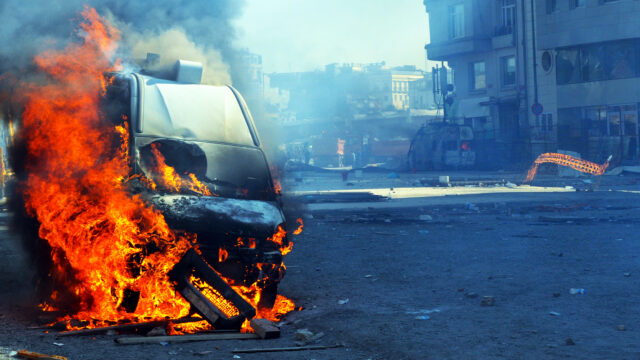Political issues in your insurance
In Kenya, there are policies that protect businesses against losses from terrorism, civil unrest and insurgency.

Anytime there is a protest in the country, it is always expected that it will lead to violence, looting and loss of lives.
While democratic countries like Kenya have the freedom to picket, criminals exploit the formation of large crowds to engage in hooliganism that severely affects businesses.
So, what should business owners do in such an instance?
As witnessed in the recent past, if they are aware of possible riots in advance, it is safer to stay closed until calm is restored.
Even so, no matter how prepared you are for chaos, you can never be fully prepared.
Whenever demonstrations happen, the relevant public services (police, fire, health care, ambulance services) often get stretched, making it difficult for a business to get a quick response.
This is where insurance comes in.
In Kenya, there are policies that protect businesses against losses from terrorism, civil unrest and insurgency.
These policies are designed to cover sabotage, terrorism, mutiny, rebellion, insurrection and coup d’état (excluding war and civil war).
Here’s a closer look at how insurance deals with these issues:
Types of Coverage
- Political Risk Insurance (PRI): This type of insurance is designed to protect against losses arising from political events, including civil unrest. PRI can cover various risks, such as property damage, business interruption, and loss of income due to political instability.
- Property Insurance: Standard property insurance policies may not always cover damage caused by riots or civil disturbances. However, some insurers offer specialised endorsements or add-ons to cover such risks.
- Business Interruption Insurance: This insurance covers losses resulting from disruptions in business operations due to civil unrest. It can compensate for lost income and extra expenses incurred to resume operations.
- Public Liability Insurance: This covers legal liabilities arising from damages or injuries caused to third parties during civil unrest. It is particularly relevant for businesses operating in areas prone to unrest.
Even so, there are some activities that you can do to prepare ahead, such as
1. Stay informed: Keep up-to-date information on developments in your locality. When chaos erupts, assess your state of vulnerability. Consult with authorities such as the police or your area security guards to judge whether it is safe to remain open for business.
2. Remove dangerous items: Remove anything, such as flammable substances, that could be used against your business premises. Secure any hardware that rioters may use to force their way into your premises.
3. Install protective structures: Grills, metal doors and unbreakable glass are some of the most common measures businesses in vulnerable areas such as the Nairobi Central Business District have used over the years to keep out looters or at least slow them down.
4. Build good social relations: Not all rioting is national in nature; some can be over local grievances. You can build goodwill in your locality through good business relations with the community and getting involved in community development.
For anyone considering insurance against civil unrest in Kenya, it’s advisable to consult with insurance brokers or providers who specialise in political risk insurance to tailor coverage to specific needs and risks.
